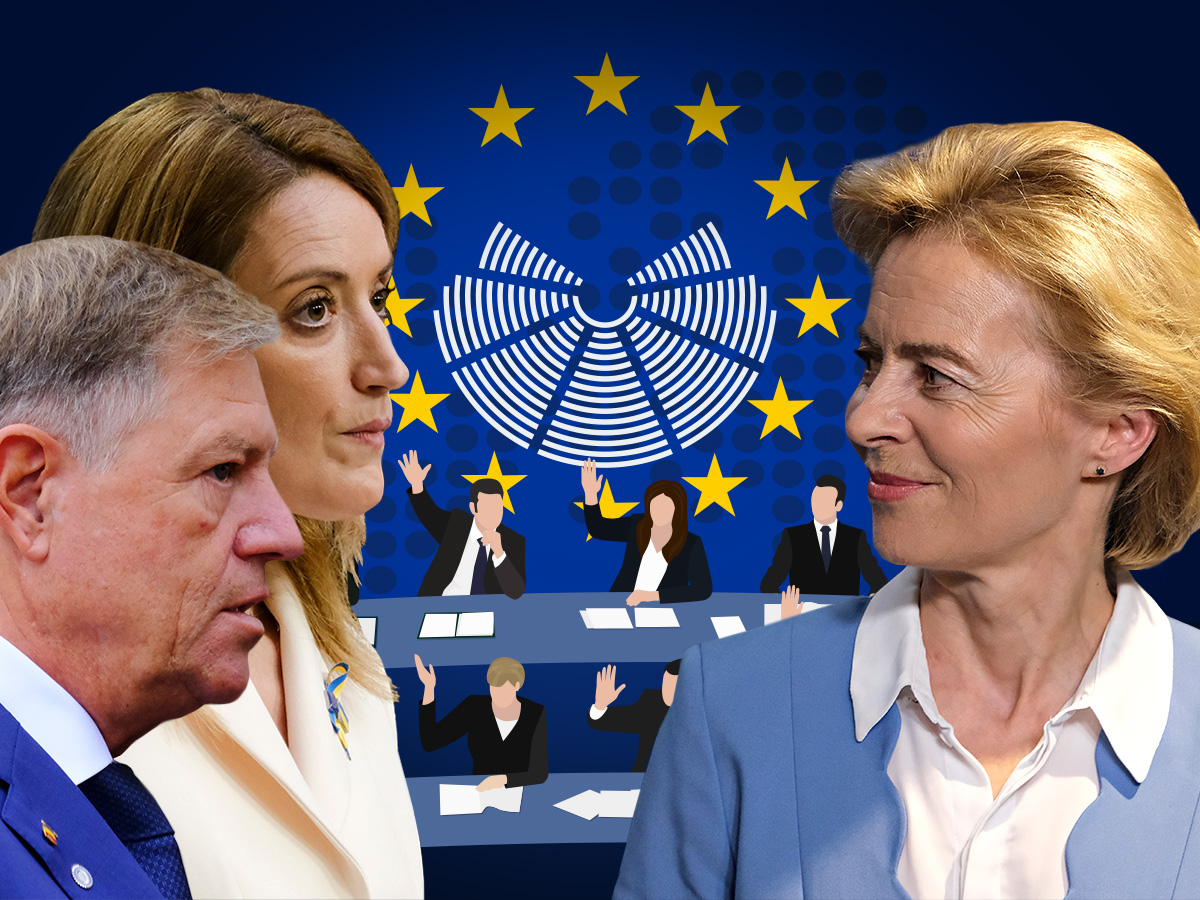When Ursula von der Leyen announced her re-election bid as European Commission president, the outcome seemed almost certain. Her bid was backed unanimously by her own party, Germany’s Christian Democratic Union (CDU).
Then, as she vowed to “make the centre strong” and to “defend the EU against the divisive forces” from the inside and outside, her bid was quickly endorsed by a wide array of actors, starting with the EPP itself (even if not unanimity, as the French Les Républicains have accused her of “embodying a technocratic rift” that alienated the EU from the Europeans it claims to serve).
Despite her dubious track record, back in February it seemed that there were only a few, who opposed her second term. Some even went so far as to declare that von der Leyen had only one rival: herself, as her main opponent back then, socialist Nicolas Schimt was seen “mediocre” and “all but guaranteed to lose the race”.
The closer the European Parliamentary elections get, the more doubts surfaced. Parties and politicians from all over Europe declared that they would not endorse her candidacy.
By now, there are many candidates for the post. Besides the seven other Spitzenkandidates (socialist Nicolas Schimt, European Free Aliance’s Maylis Roßberg. Walter Baier, Valeriu Ghiletchi, Marie-Agnes Strack-Zimmermann, Anders Vistisen and Bas Eickhout), the names of Mario Draghi, Klaus Iohannis (President of Romania), Roberta Metsola and more had been whispered around the corners of Brussels.
The fight is on.
One thing to admit is that von der Leyen is not entering the battle blindly. She’s adapting as new challenges emerge. She was a “compromise candidate” in 2019, after all, she knows how to change standpoints so she can offer something to as many people as possible .
Maybe a bit less flexibility wouldn’t hurt, though.
Promising “little bits and bobs” to everyone, watering down or pulling back policies can achieve exactly the opposite as hoped, especially in today’s ideologically fractured, black-or-white world.
As of now, von der Leyen is attacked from all sides.
Once accused of having a “penchant for ambitious policies” and having been known for “floating grand ideas in public” (basically undermining any negotiation before it could have started), during the last months, the Commission President has been peeling back unpopular policies.
Think: toxic chemical pesticides.
While it might have pleased her own EPP (desperate to slow down the Green Deal), the step earned von der Leyen a massive backlash from the Greens. Spain’s environment minister Teresa Ribera wasn’t shy in expressing her opinion, accusing von der Leyen of sacrificing the long term for short-term political gains. She was especially worried (no, “deeply troubled”) by the centre-right’s embrace of the far right.
The latter referred to the budding romance between von der Leyen’s EPP and Giorgia Meloni’s Brothers of Italy party. Something that bothers many on the left-end of the political spectrum, fearing where the “[European] parliament’s disturbing shift towards the right” might lead.
As if being attacked from “outside” wouldn’t be enough, she has some frenemies within her own EPP, too. Fellow German, EPP chief Manfred Weber is one of them, who ordered MEPs to sign on to a legal challenge in Parliament questioning the Commission’s decision to unfreeze Hungary’s €10 billion grants. (This followed another “Weberian” punch aimed at the Commission: torpedoing the nature restoration act.)
Ursula “Chameleon” von der Leyen probably realized a few weeks ago that her plans for securing a second term weren’t unfolding the exact way she expected.
Though she started her campaign as the defender of Europe, even promising the creation of a “commissioner for defence” (forget the little scandals linked to her name as German Minister of Defence, or that her tenure was largely seen as a failure), she quickly tried to rebrand herself from “crisis-manager-in-chief” to a warm mother/grandmother image (she is the mother of seven, after all, who wants her children’s children “to grow in a safe, prosperous Europe”), when questions started to arise about the success of her crisis-management.
It is too early to see, in which direction the “Ursula 2024” slogan and logo (bearing a striking resemblance to the visuals used by Nigel Farage) will push her campaign … but it didn’t change the familiar pattern of scandals and mishaps emerging.
A cyber-attack against her campaign website (ursula2024.eu) undermines her credibility as the “defender of Europe”, while her two “P-letter scandals” (“Piepergate” and “Pfizergate”) cast a shadow on her stance on rule of law.
And it isn’t only Pfizergate (currently taken over by the EPPO, investigating von der Leyen over “interference in public functions, destruction of SMS, corruption and conflict of interest”) that puts von der Leyen at loggerheads with EPPO chief Laura Codruta-Kövesi.
The Commission has recently (coincidence, for sure) decided to reduce the EPPO’s funding, well, to withdraw the IT support promised to the prosecutors (when the EPPO was launched back in 2021). According to Kövesi, the move would have meant that the EPPO would have been “in the impossibility to carry out its tasks and achieve its mission”. No wonder that Kövesi took the unusual step of launching an “amicable settlement procedure” with the Commission (basically threatened von der Leyen with suing her).
As the mountain of problems and complaints keeps on growing, so is the doubt: is Ursula von der Leyen truly the best person to lead Europe for the next five years?
